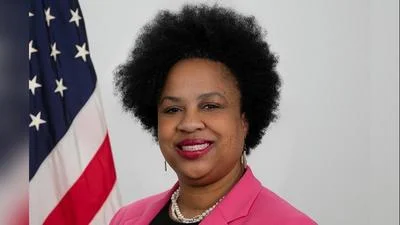The former assistant director of the Illinois Department of Veterans Affairs sexually and racially harassed his employees, according to the Illinois office of the Executive Investigator General.
The former assistant director, Harry Sawyer, resigned May 31, 2018. The results of the OEIG’s investigation were released in the agency’s newsletter the week of Sept. 9.
The investigation into Sawyer’s actions began in April 2018 after several female subordinates reported Sawyer made inappropriate comments about them. He allegedly referred to female workers as “eye candy” and “lunch,” according to the investigation report. In another incident, female workers said Sawyer asked them to lick icing from a spoon. During a meeting, several employees said Sawyer suggested a female worker appear in a parade naked, on horseback, as “Lady Godiva.”

Harry Sawyer
| State of Illinois
The OEIG report found Sawyer also used racial slurs to describe African-American workers who angered him.
Workers told the OIEG investigators they considered the comments creepy or inappropriate for someone in a leadership capacity.
Sawyer, who served in Vietnam and worked for the state for 37 years, did not take part in the investigation. He resigned before the report was completed. His supervisor, Erica Jeffries, told investigators she did not personally observe any interactions that she considered sexually harassing or overtly racist.
“The OEIG concluded that Mr. Sawyer’s sexually harassing conduct violated the IDVA handbook’s prohibition against sexual harassment, and that his use of highly offensive, race- based language violated the State of Illinois Code of Personal Conduct,” the OEIG investigators wrote in the report. However, they said the actions did not rise to the level of a violation of the state ethics act, and was not serious enough to be pursued under that law.
The OEIG also pointed out in the report that the state Department of Veterans’ Affairs may need to revise its policies on racial discrimination and harassment. Investigators wrote that current policies allow for a stronger response in cases of sexual harassment than for race-based violations.





 Alerts Sign-up
Alerts Sign-up